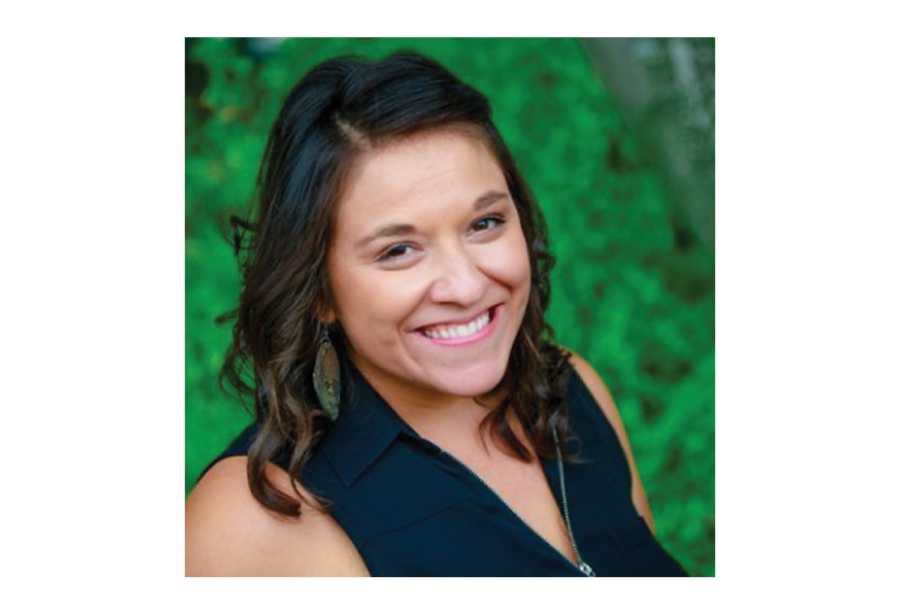Minority mission
Equal Opportunity Schools Coordinator reflects on life as lower class Latina
Photo by eosschools.org
Delores Caamano is a Senior Director of Partner Development for Equal Opportunity Schools. She works with the organization to encourage more diversity in advanced high school curriculums.
May 20, 2022
Her skin smelled of ashes. Her pockets were drained of change. And the beginning of her life was rife with misfortune.
Just the smoke stench of her clothes was evidence enough that Dolores Caamano was not dealt with an easy upbringing. As if being a lower class Latina woman in a more privileged area wasn’t an obstacle in itself, she was also raised fatherless at just four years old after her dad passed away.
“I had a very tough upbringing,” Caamano said. “I developed grit because I had to survive.”
After Caamano’s father’s passing, her mother turned to alcohol for comfort, leaving her without two of a child’s major role models. She found comfort in her education when many would seek solace in their parents.
“I was a teacher’s pet,” Caamano said. “I loved the attention from teachers because I didn’t have it at home, so I thrived off of it at school. I did everything I was supposed to do.”
Despite her dedication to schoolwork, learning was an acquired skill for Caamano. Her lack of innate abilities became an excuse for teachers to discourage her from pursuing advanced classes.
“I [told a teacher] ‘I wanna take the AP course next year’,” Caamano said. “She thought I would hang better in a regular course, and so I believed her because teachers had never done me wrong. My parents left me, not my teachers.”
Not every instructor shunned her away from her own intelligence. She was involved in her high school’s yearbook, earning the title of assistant editor entering her sophomore year, a rare feat for an underclassman.
“My journalism teacher never felt sorry for me even though she knew my life was chaotic,” Caamano said. “She pushed me to be better. I was incredibly curious, incredibly nosy. I would ask anybody [questions].”
Caamano’s journalism teacher recognized her initiative and potential. It was the teacher’s faith in her student that led her to erase the check next the on-level English class on Caamano’s course selection sheet and mark her as requesting pre AP English.
“That changed everything for me,” Caamano said. “I knew I had an adult in my corner. At that point, I knew I had to do everything in my power to reach her expectations.”
As a disadvantaged person of color amidst her systemically benefited peers, her grades did not reflect her fullest potential. The tutors and books that her classmates treated like pocket change were unaffordable to her family. This obstacle may be what led her to a less than impressive ACT score of 21.
“I was poor,” Caamano said. “I didn’t have money to buy that thick, old ACT prep book. And my parents had to choose between buying me food or helping me prepare for an exam. We chose food to survive.”
Standardized testing proved to be no issue when she earned the same job as her academic role model. The same job as the other woman who insisted she was not fit for an advanced classroom. Her valiant efforts in college led her to a career in teaching.
“I do this work where I can hope to inspire other teachers to have high expectations for students, no matter what they look like, no matter where they come from,” Caamano said. “See the potential, have high expectations and support them to meet their goals.”
As much as she strives to motivate children of all backgrounds, the basics of what was recorded about students was not a tool but an obstacle to achieve her mission.
Caamano’s need to support minority students evolved into being named Senior Director of Partnership Development for Equal Opportunity Schools, a nonprofit that works with schools across the country to increase AP class participation among minorities. Caamano’s involvement with EOS allows her to do more than instruct idly in a system she was discontent with.
“Acknowledge your privilege first,” Caamano said. “Acknowledge that others don’t experience the world the way that you do. There’s no need to make fun of somebody because they work at a slower pace.”
Caamano’s childhood is said and done. She has wiped the ash off of her clothes and led herself into a brighter future into the one she was born into. But her work in academic equality continues into adulthood. Her goal is to make the classroom into a place where any student can find the courage to succeed and support one another.
“Think about if you and I were to have a friend who’s training for a marathon,” Caamano said. “She just ran eight miles. I can only do five. She doesn’t make fun of me in that fifth mile. So be supportive; see where people are and help them get where you want to be. Be human.”















